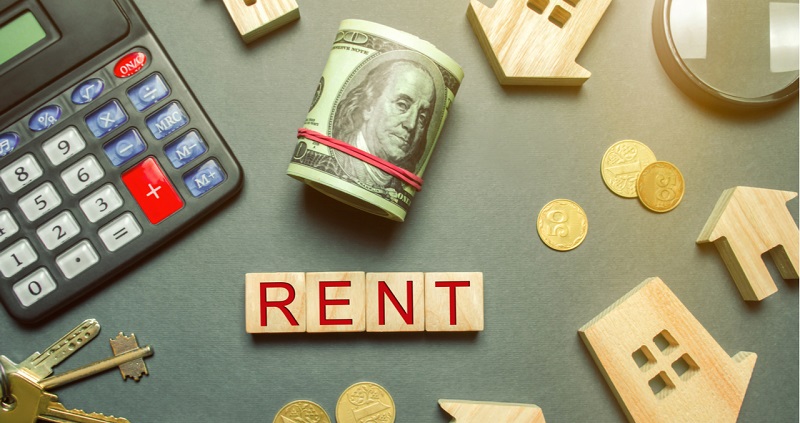What is the Meaning of Rental Business?

What is a Covered Outdoor Area Called? Unraveling the Enigma of Outdoor Shelters
August 14, 2023
Side Effects of Shock Collars for Dogs
August 17, 2023Renting, also known as leasing, is a common practice in which one party (the owner or lessor) allows another party (the renter or lessee) to use their property or assets for a specified period in exchange for payment. The rental business refers to the industry and activities involved in providing goods, services, or properties for rent. In this article, we will explore the meaning of the rental business, its benefits, and its various forms.
Table of Contents
ToggleUnderstanding the Rental Business
The rental business encompasses a wide range of industries and sectors, including but not limited to real estate, vehicles, equipment, furniture, and appliances. It provides individuals, businesses, and organizations with the opportunity to access and use items or services without the need for ownership. For example, in addition to indoor spaces, some rental businesses also offer outdoor space for rent, such as parking lots, gardens, or event venues.
Renting can be a more practical and cost-effective alternative to purchasing, especially when the item is only needed for a short period or on an occasional basis. It allows individuals and businesses to save money, avoid long-term commitments, and ensure flexibility in their operations. The rental business facilitates this exchange by connecting owners or lessors with potential renters or lessees.
The Types of Rental Businesses
There are several types of rental businesses, each catering to different needs and industries. Let’s explore some of the most common ones:
1. Real Estate Rental
Real estate rental is one of the most well-known forms of the rental business. It involves renting out residential, commercial, or industrial properties to tenants. Landlords or property owners offer their properties for rent, typically signing lease agreements with tenants for a specified period. The rental price is determined based on factors such as location, property size, amenities, and market demand.
2. Vehicle Rental
Vehicle rental is another popular type of rental business. Car rental companies provide customers with the option to rent cars, trucks, vans, or specialized vehicles for a short period. Individuals and businesses use vehicle rental services for various reasons, such as vacations, business trips, or temporary transportation needs. Rental rates are usually based on factors such as vehicle type, duration of rental, mileage, and additional services.
3. Equipment Rental
The equipment rental industry focuses on providing customers with access to machinery, tools, and equipment without the need for purchasing and ownership. Construction companies, contractors, and individuals involved in DIY projects often rely on equipment rental services to access specialized tools and heavy machinery. Equipment rental businesses offer a wide range of options, from small hand tools to large construction equipment, and rental rates are determined based on factors such as equipment type, duration of rental, and demand.
4. Party and Event Rental
Party and event rental businesses specialize in providing customers with the necessary items and equipment for hosting parties, weddings, corporate events, and other gatherings. This includes renting tables, chairs, tents, decorations, sound systems, and catering equipment. Event rental companies help individuals and event planners create memorable experiences without the need for purchasing and storing large quantities of party supplies. Rental rates are typically based on the quantity and type of items rented, duration of the event, and additional services required.
5. Furniture and Appliance Rental
Furniture and appliance rental businesses offer customers the option to rent furniture, home appliances, and electronics for temporary use. This is particularly useful for individuals who are in the process of moving, students living in dormitories, or people who want to furnish their homes temporarily. Rental rates for furniture and appliances are usually based on the type of item, duration of rental, quality, and additional services such as delivery and setup.
Benefits of the Rental Business
The rental business provides numerous benefits for both renters and owners. Let’s delve into some of the advantages:
- Cost-Effective: Renting allows individuals and businesses to access and use items or services without the need for a large upfront investment. Renting is often more affordable than purchasing, especially for items that are only needed temporarily or sporadically.
- Flexibility: Renting provides flexibility and eliminates long-term commitments. Renters have the freedom to choose the duration of rental and can easily switch to a different item or service when their needs change.
- Access to High-Quality Products: Rental businesses often offer high-quality items and equipment that may be too expensive to purchase outright. This allows individuals and businesses to use top-of-the-line products without the financial burden of ownership.
- Maintenance and Upkeep: Renters are typically not responsible for maintenance and repairs, reducing the cost and effort required to keep the rented items in good condition. The rental business takes care of any necessary repairs or maintenance.
- Trial Periods: Renting allows customers to test out an item or service before committing to purchasing it. This is particularly beneficial when considering expensive items or services, as it allows customers to evaluate their suitability and performance.
Conclusion
The rental business plays a crucial role in providing individuals and businesses with access to a wide range of goods, services, and properties. From real estate and vehicles to equipment and party supplies, the rental industry offers a flexible and cost-effective solution for temporary or occasional needs. Renting allows customers to use high-quality products without the burden of ownership and provides both financial and operational flexibility. Whether for personal or business purposes, the rental business offers a convenient and practical alternative to purchasing.
FAQs (Frequently Asked Questions)
- Are there any risks involved in renting?
While renting offers many benefits, there are potential risks involved. These may include damage to rented items, additional charges for late returns or excessive wear and tear, and the possibility of not getting the desired item due to availability issues. It’s important to carefully read rental agreements, understand the terms and conditions, and take proper care of the rented items to minimize risks.
- How can I find a reliable rental business?
To find a reliable rental business, it’s advisable to do some research. Read online reviews and check the reputation and track record of the rental company. Ask for recommendations from friends, family, and colleagues who have had positive experiences with rental businesses in the past.
- Can I negotiate rental prices?
In some cases, it may be possible to negotiate rental prices, especially for long-term rentals or when renting multiple items. It’s worth discussing with the rental business to see if any discounts or special rates are available.
- What should I do in case of damage or loss of rented property?
If there is damage or loss of rented property, it’s important to notify the rental business immediately. Most rental agreements have clauses regarding damage or loss, and it’s important to follow the instructions provided by the rental business to resolve the issue.
- How far in advance should I book rental items or services?
The timing may vary depending on the type of rental item or service. For popular items or during peak seasons, it’s advisable to book well in advance to ensure availability. For less in-demand items, a few days or weeks in advance may be sufficient.



